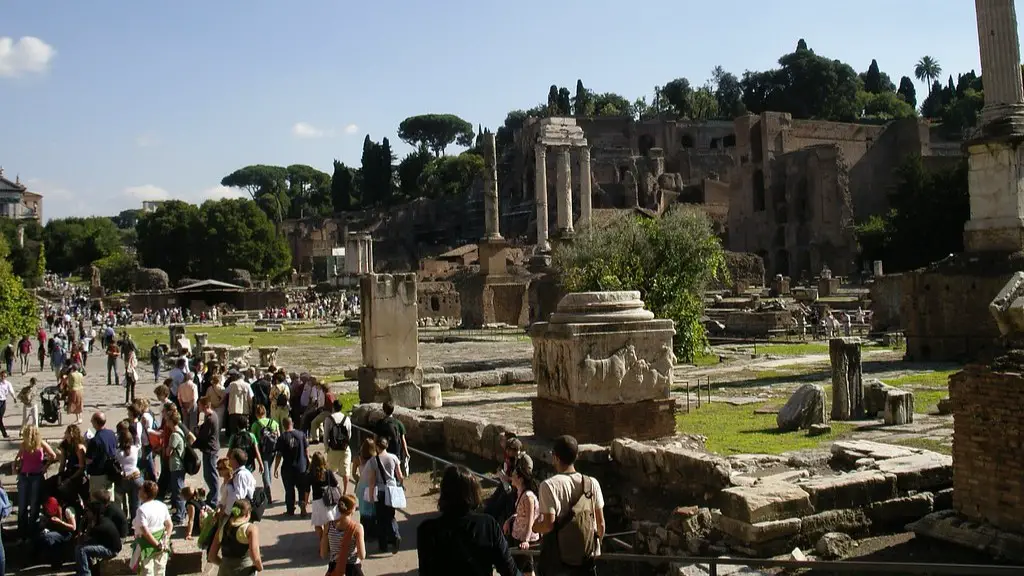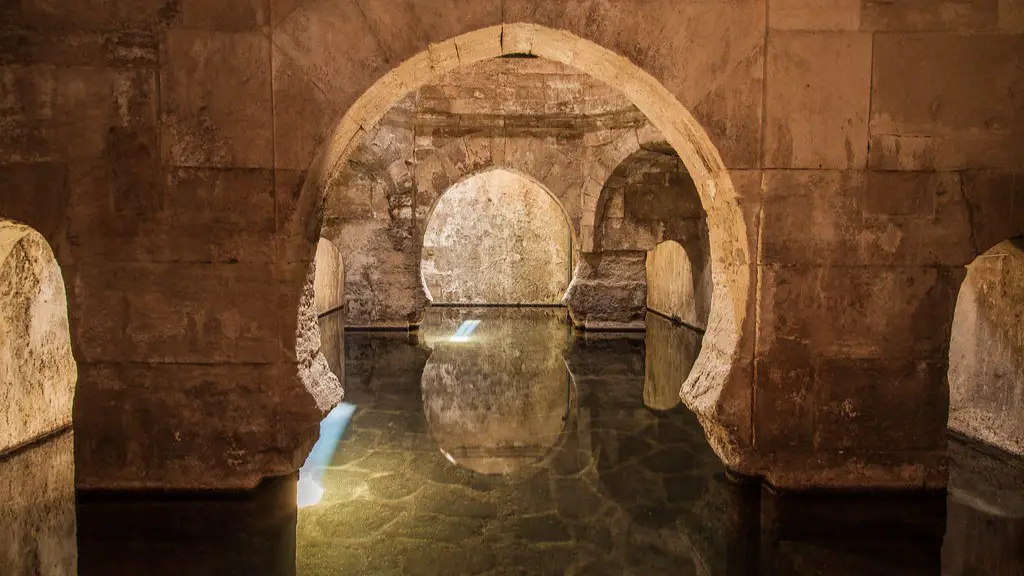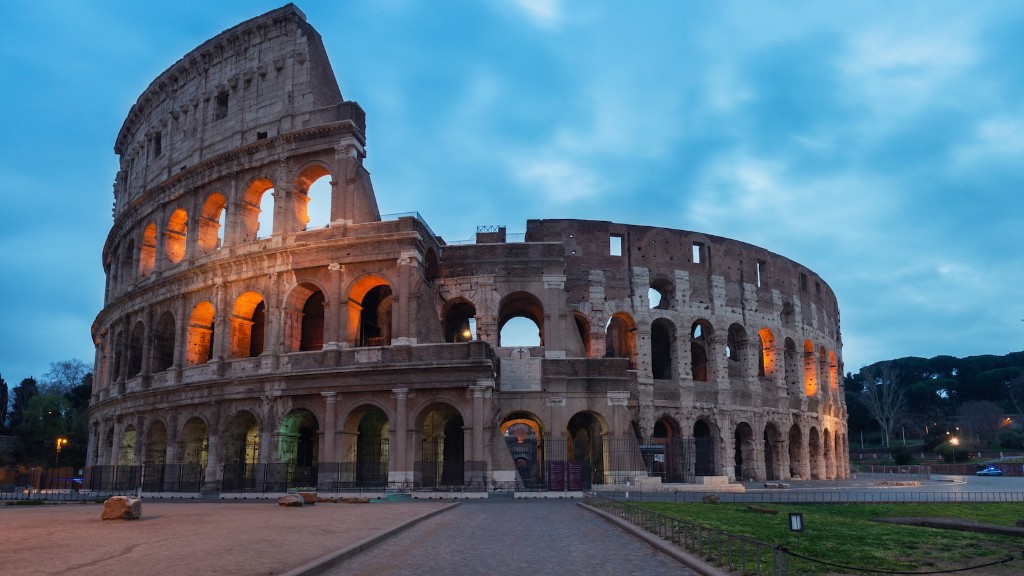Tribal Assembly of Ancient Rome
Ancient Rome was a complex and diverse state, with its own system of government that evolved over time. One of the original institutions of the Roman Republic was the tribal assembly, which was composed of all citizens of Rome organized into tribes. This assembly was one of the main centers of political power in the Roman Republic and was used to vote on issues of government, war, and economics.
During the time of the Roman Republic, the tribal assembly was considered one of the main organs of the Roman government. Every citizen of Rome was assigned to one of 35 Roman tribes and used their collective votes to decide on legal, financial, and foreign policy issues. This form of government was seen as a way to avoid the influence of powerful wealthy citizens, or even factions within the Roman Senate, and give a voice to the people. The tribal assembly was initially composed of the heads of families of the particular Roman tribe, but it eventually included all citizens in an effort to create a more representative form of government.
The tribal assembly was the most powerful of the assemblies during the Roman Republic, and it was the only one that could constitutionally pass laws. It had the power to declare war and ratify treaties. It was also the only assembly that had the power to declare and accept dictators, a major power in times of emergency. This assembly also had control over the finances and budgets of the Roman state. It also had control over the interpretation and implementation of the laws of the state. This assembly was one of the cornerstones of the Roman Republic and provided the people with a platform to make their voices heard.
For centuries, the tribal assembly remained the single most powerful body in Roman government. Its decisions impacted all aspects of civil and military life, with far-reaching implications. This is evidenced by its role in the Roman expansion and its influence in the rise of Julius Caesar, who was elected to the office of dictator by the tribal assembly before his eventual rise to power. The tribal assembly is also seen as one of the main catalysts for the foundation of the Roman Empire. By granting more power to the people, it was instrumental in paving the path for Rome’s transition from a republic to an empire.
The tribal assembly was an important part of the Roman Republic, providing a voice for the people and allowing them to have control over their own destiny. Despite its eventual dissolution following the fall of the Roman Republic, the tribal assembly exemplified many of the values of democracy and serve as an example of the power of a collective voice.
Power of the Tribes
The tribal assembly played an important role in the governing of Rome. It was a key factor in balancing the power of the Roman Senate and the wealthy elite of Rome. Without it, the Roman Senate would have had total control over the people. This assembly was able to protect the rights of the people by granting them a platform to voice their opinions. Through its collective decision-making, the tribal assembly was able to create laws that protected the rights of the people and ensured that the government acted in their best interests.
The tribal assembly was also influential in determining who had power in Rome. Its collective votes were responsible for deciding the fate of dictators, such as Julius Caesar, who was elected to the office of dictator by the tribal assembly. The tribal assembly also earned the respect of the Roman citizenry for its ability to make decisions for the good of Rome as a whole. Through its collective votes, the Roman people were able to take control of their own destiny by deciding who had power and what kind of government they wanted.
The tribal assembly was also a major factor in Rome’s military campaigns. The collective votes of the assembly were responsible for deciding whether or not Rome should go to war and declare peace. The assembly’s ability to decide the fate of Rome’s military campaigns allowed it to be an effective tool for keeping Rome secure and ensuring the safety of its citizens. In addition, the assembly was instrumental in helping to spread the Roman influence outside of the Italian peninsula. Its collective votes helped to expand Roman influence and create the empire Rome is known for today.
The tribal assembly was a powerful and influential institution in the Roman Republic, and its influence was felt all throughout Roman society. Through its collective votes, it was instrumental in determining Rome’s future, both domestically and internationally. By granting the Roman people a platform to voice their opinions, it helped to keep them safe and ensured their rights were protected. The power of the tribal assembly demonstrates the power of a collective voice and was an important factor in the success of the Roman Republic.
Structure of the Assembly
The tribal assembly was composed of all citizens of Rome organized into 35 tribes. Every citizen was assigned to one of these tribes and, depending on the issue being voted on, each tribe was allocated a certain amount of votes. This system of voting ensured that each tribe had an equal say in the decisions made, no matter how large or small. The votes of the tribal assembly were tallied by a “tribune of the plebs,” elected by the people from one of their own, who ensured that all votes were counted equally.
The tribal assembly also had a specific governing body known as the “Comitia Tributa”. This governing body was composed of a few representatives from each tribe. These representatives were responsible for presenting the various motions and resolutions to the tribal assembly for a vote. They also acted as a buffer between the Roman Senate and the people, taking the Senate’s concerns into account and presenting them to the tribal assembly in an effort to ensure all parties were represented fairly.
The Roman Senate also had representatives in the tribal assembly known as “vigintiviri” or “tribuni pleinis”, who were responsible for making sure the tribal assembly’s decisions were in line with the overall constitutional structure of Rome. In addition, there were other governing bodies in the tribal assembly such as “tribuni aerarii”, who were responsible for collecting taxes, and “magister equitum”, who were responsible for appointing military leaders and leading campaigns.
The tribal assembly was an important and influential institution in the Roman Republic, with its various governing bodies and collective voting system providing a platform for the Roman people to make their voices heard. The structure of the assembly combined with the binding power of its votes was one of the cornerstones of the Roman Republic, and its power has been felt throughout history.
Legacy of the Tribal Assembly
The tribal assembly was an important part of Roman government during the days of the Roman Republic, and its legacy has been felt throughout history. It provided the Roman people with a platform to voice their opinions and take charge of their own destiny. Its collective votes helped to ensure the stability of Rome’s government and its influence in the region.
The legacy of the tribal assembly is also seen in the Roman Empire, which was an extension of the Roman Republic. Its structure paved the way for Rome’s transition from a republic to an empire, granting more power to the people and allowing them to decide their own fate. The power of the tribal assembly is a testament to the power of collective voice and a reminder of the importance of democracy.
In modern times, the legacy of the tribal assembly has been felt in the development of democracy in countries such as the United States, where voting rights are protected. In addition, the collective vote is often used to decide the fate of various issues in modern democracies, such as referendum voting and ballot initiatives. This shows the lasting impact of the tribal assembly, which was one of the original institutions of the Roman Republic and provided the foundation for modern voting systems.
Conclusion
The tribal assembly of Ancient Rome was an important part of the Roman government during the days of the Roman Republic. This assembly was composed of all citizens of Rome organized into tribes and used their collective votes to make important decisions. Through its collective voting system, it was able to ensure the rights of the people and keep the Roman Senate in check. The tribal assembly was also instrumental in deciding the fate of Rome’s military campaigns and the rise of Julius Caesar to power, paving the way for the Roman Empire. Its legacy can still be seen today in the structure of modern democracies and it serves as a reminder of the power of a collective voice.




